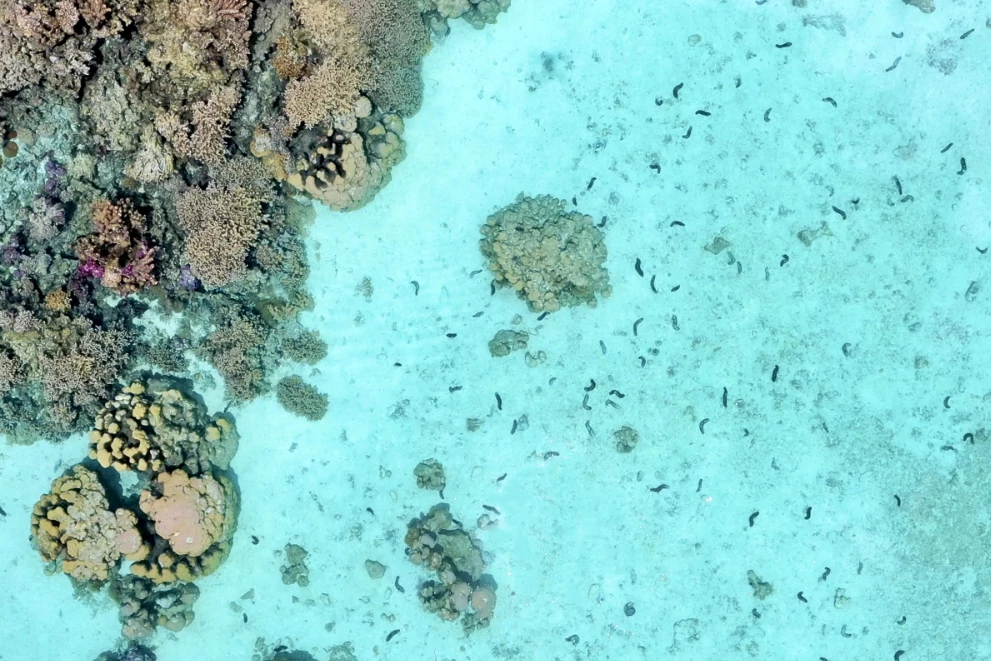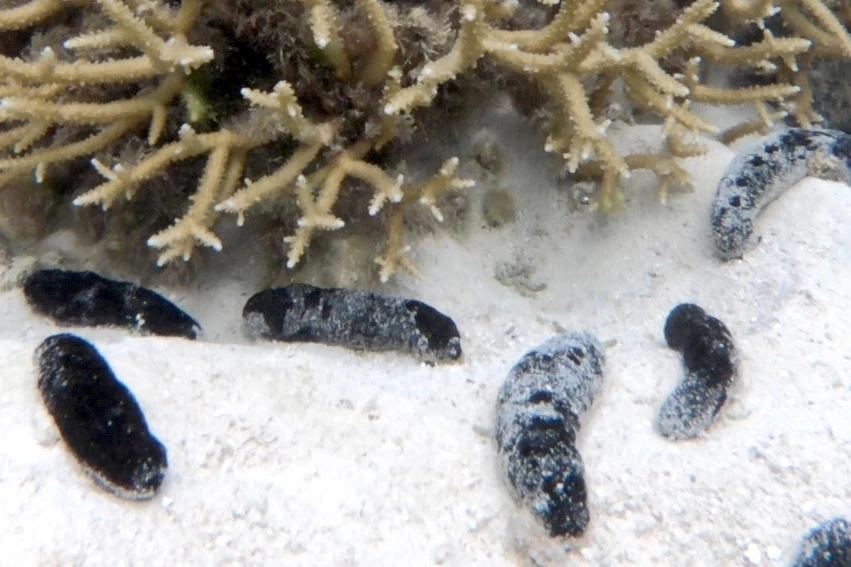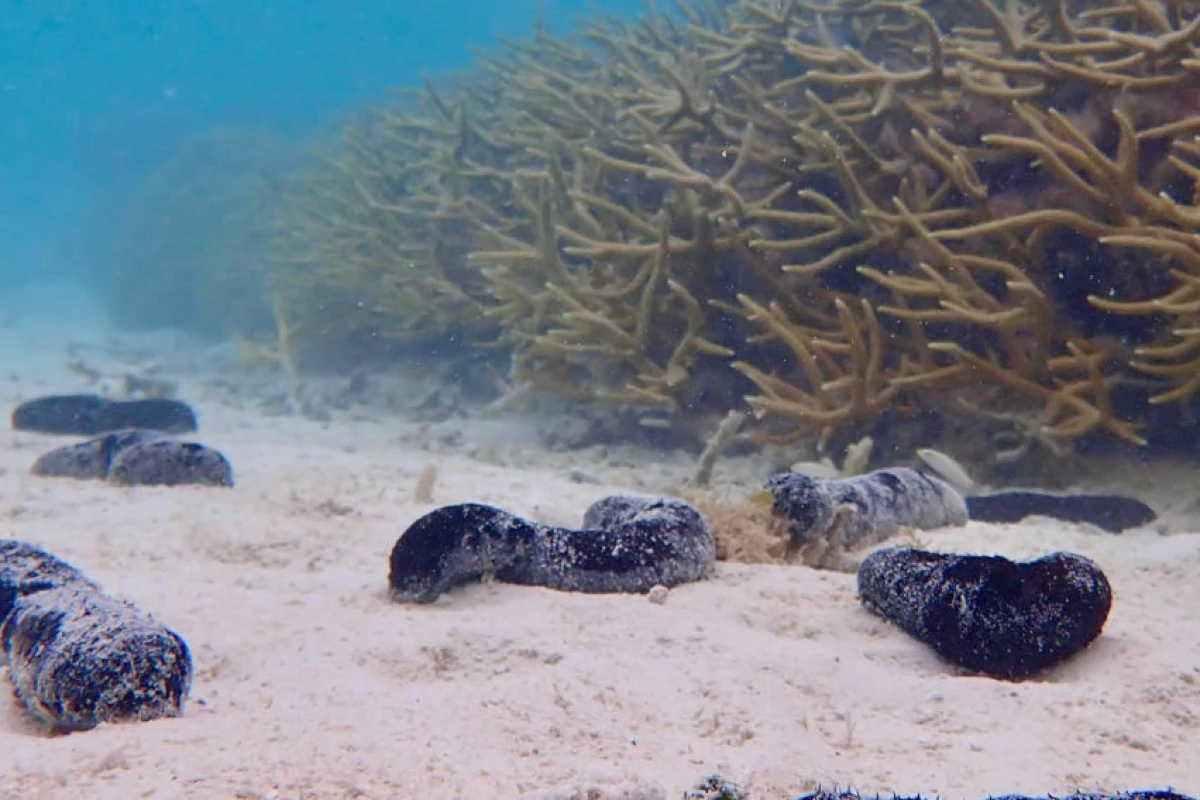Although the humble sea cucumber may not look like much, it could soon be recruited to help save the world's coral reefs. The bottom-dwelling animals have been found to play a vital role in protecting corals from harmful bacteria.
Climate change is largely responsible for the mass die-off of our planet's coral reefs, as stress caused by higher water temperatures causes corals to expel the symbiotic algae living within them. The loss of that life-giving algae isn't the only problem, however.
Stressed corals are also more susceptible to infection by naturally occurring bacteria. In the past, populations of those microbes were kept to manageable levels by sea cucumbers, which feed on seafloor sediment. Unfortunately, due to over-harvesting for use in the Asian seafood market, sea cucumbers are now becoming increasingly rare in many regions.
In order to see just how crucial the animals are to reef health, a Georgia Tech team led by Mark Hay and Cody Clements conducted a series of field experiments in the South Pacific Ocean.

Near the island of Mo’orea in French Polynesia, the scientists left existing Holothuria atra sea cucumbers in 10 plots of sandy seabed and removed them from 10 others, then planted five Acropora pulchra coral segments in each of the plots. Those plots were subsequently inspected on a daily basis for a period of 45 days. It was ultimately found that coral mortality caused by sediment-associated diseases was 15 times greater in the sea-cucumber-less plots.
The researchers got similar results when they performed a similar smaller-scale experiment in Palmyra Atoll, which is located between Hawaii and American Samoa. This time, however, they used different species of both sea cucumber (Stichopus chloronotus) and coral (Acropora nasuta).

Hay and Clements now hope that their findings will prompt governments and other groups to impose stricter limits on the harvesting of sea cucumbers, and to begin raising the animals for release onto reefs that are in need of protection. Farmed sea cucumbers could potentially also find use in keeping fish farms clean, and possibly even delaying the onset of type 2 diabetes.
"If you remove all the scum suckers in the great fish tank of Earth, you’re going to get a dirty tank eventually," said Clements. "People have paid lip service to the idea that sea cucumbers could be important for a long time, but we didn’t know the scale of their importance until now."
A paper on the research was recently published in the journal Nature Communications.
Sources: Georgia Tech, SciDev.Net




